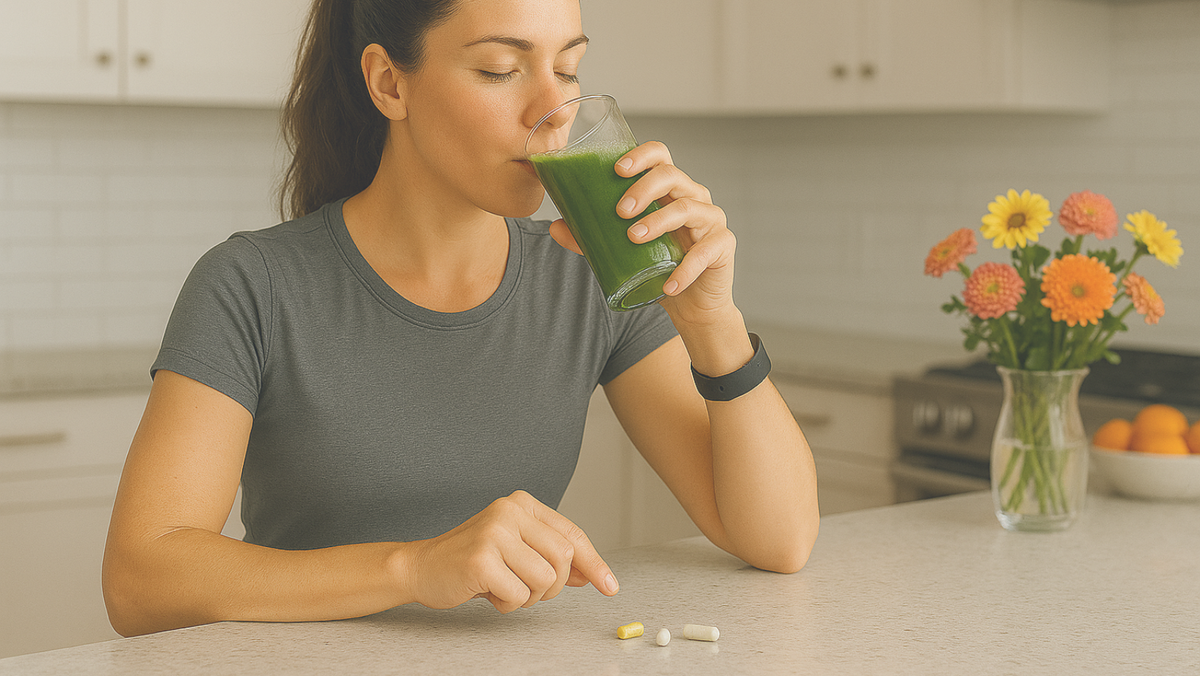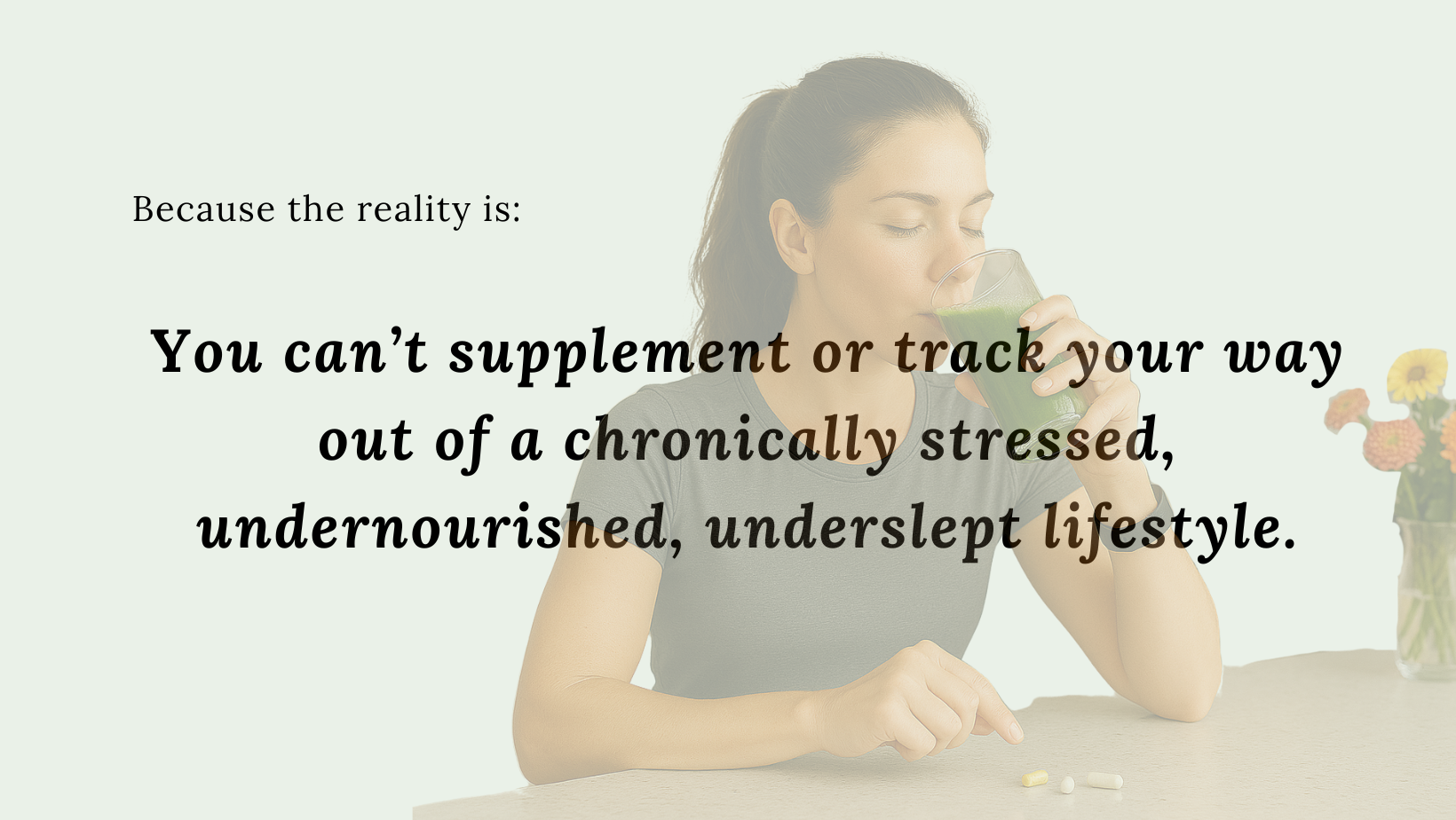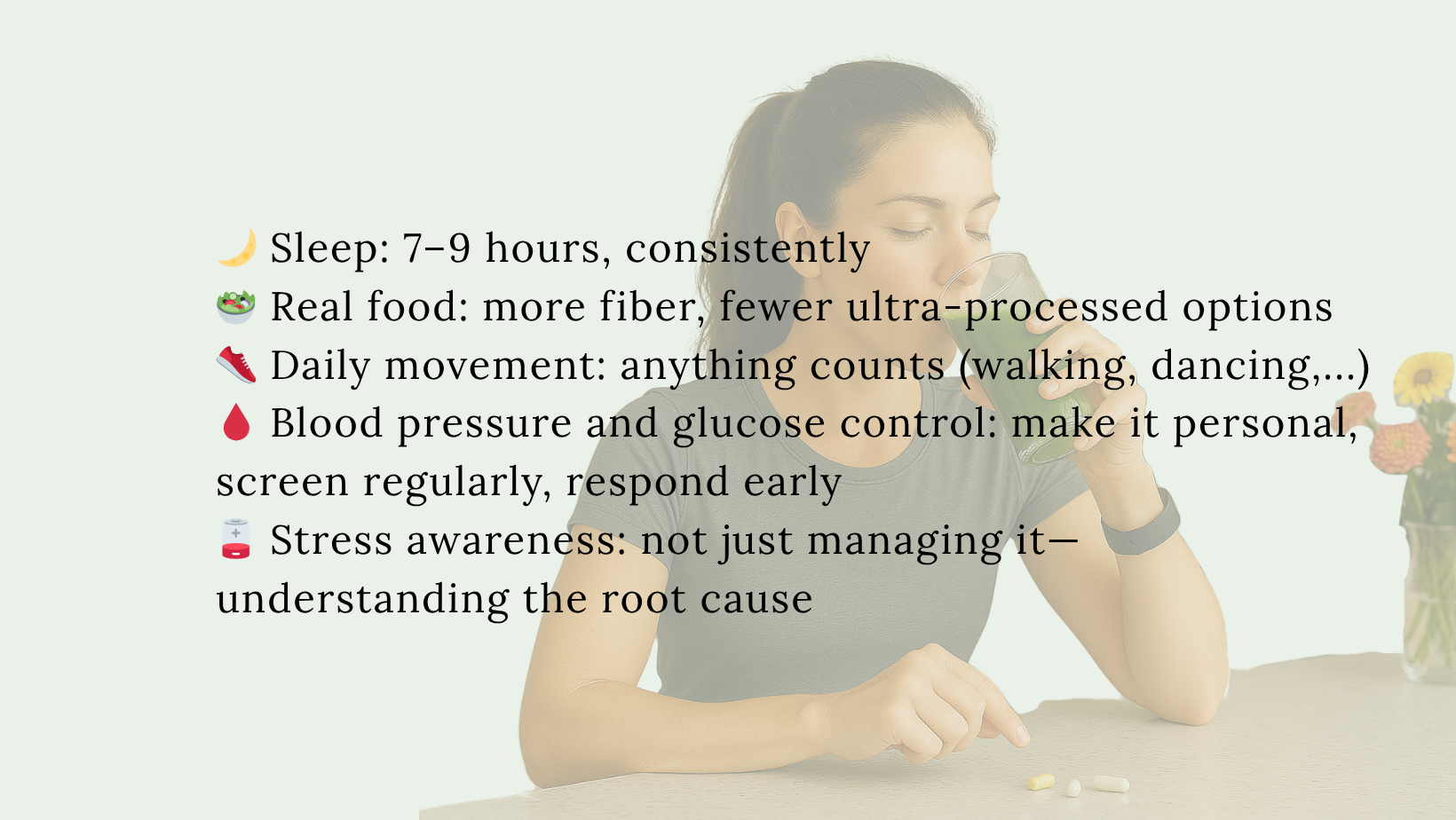You Can’t Apple Watch Your Way Out of a Heart Attack: Why the Basics Still Matter

We all know that wellness image.
The sleek Apple Watch. A greens powder and two (or more supplements) for good measure. It looks like health is being handled.
But here’s the uncomfortable truth: tracking your health isn’t the same as protecting it.
You can close your rings, hit your protein goal, and still be missing the things that truly keep your heart—and body—well.
Heart Disease: The Silent (and Preventable) Killer of Women
Here’s something that should be on every magazine cover, but rarely is: heart disease is the number one cause of death in women.
More than breast cancer. More than any other single condition.
And yet—most women don’t see it coming. To make matters worse: Women are more likely to be misdiagnosed or experience delays in treatment, which can worsen outcomes. Partly due to these diagnostic challenges, women are more likely than men to die from a heart attack.
I’ll be honest: I know this. I’ve read the stats, I’ve written about it.
But I recently heard it again in a podcast—and it hit me. It hit me so hard that I wanted to write this post about it. :)
Not because it was new information, but because I’d forgotten. Or maybe tuned it out. Because, like many women, I don’t feel at risk. I eat well. I move my body. I take care of myself.
Still, that quiet statistic reminded me: we are not immune.

The Wellness Tech Trap: When Tracking Replaces Listening
Let’s pause on the Apple Watch for a second. Because it’s not just about that specific device. It represents a whole culture of tracking:
- Sleep scores
- HRV
- Blood glucose
- Step goals
- Calorie burn
Here’s what I believe: these tools can absolutely be helpful.
They can build awareness, reveal patterns, and help you understand your body’s language more clearly.
But they are not your body’s voice.
They’re a translation tool—not the message itself.
When you start ignoring your fatigue because your watch says you recovered “well”… when you skip meals because an app told you you’ve hit your calories… when you override your own hunger, pain, or stress signals to follow a metric—that’s when tech becomes a problem.
Trackers should support your intuition—not replace it. Full stop.
Supplements Can Help—But They’re Not Magic
Some supplements are incredibly important. Especially when correcting deficiencies in iron, magnesium, vitamin D, or B12. They can help regulate hormones, improve energy, and support overall health. I often recommend them.
But supplements should be just that—supplemental.
They cannot replace nutrient-dense meals, emotional regulation, daily movement, or rest. Yet many of us are unintentionally trying to do just that:
- Take omega-3s instead of moving more
- Swallow adaptogens instead of setting boundaries
- Drink fiber powder instead of eating actual plants
This is not your fault. This is what the wellness market is selling us.
But prevention doesn’t live in your supplement drawer—it lives in your daily rhythm.
When Prevention Becomes a Privilege
Here’s where things get even more complicated—and urgent.
The truth is: wellness has become a luxury industry.
Personalized vitamins. Monthly blood testing. Biofeedback rings. Smartwatches and apps that require subscriptions.
And yet—the women who are most at risk for preventable heart attacks are often the ones with the least access to these tools.
This is the equity gap no one talks about. Because heart disease doesn’t just affect those with chronic conditions—it disproportionately affects women in lower socioeconomic groups. The same women who may not have time, access, or money for the trendy tools, but who still deserve real, actionable prevention.
Prevention should not be a privilege. It should be a public health priority. (This is the Master of Public Health speaking in me. )
What Actually Works: And Costs Next to Nothing
Let’s come back to what’s unsexy—but undeniable:

These are not flashy. But they are effective. And they work across all incomes and identities.
The New Health Status Symbol: Feeling Good in Your Body
Wellness culture has convinced us to chase numbers—step counts, heart rates, glucose levels, sleep cycles—as if they’re the ultimate proof of success. But let’s reframe.
The new health flex?
Feeling calm and content after meals. Having energy that lasts all day. Sleeping well without melatonin. Saying no to one more thing—and not feeling guilty. Balance your needs so they work for YOU- not a persona.
That’s not tracked on a wearable. But it’s what your body really needs.
Final Word: The Basics Are Still the Breakthrough
So yes—use the tracker. Take the supplement. Wear the monitor.
But don’t forget: your body already speaks. Your heart already knows. You don’t need permission from a screen to rest, eat, move, or breathe. Cherish the essentials.
Because your real protection lies in how you live. Not how you log it.
